Self-Care looks different during every phase of our lives. As you get later into your pregnancy & after you have your baby self care will become more important than it has been prior to now. Here are a few things you can consider as you get further along….
Let me first say that your mental health matters.
It’s the #1 cause of death postpartum because we tend to think we’re “doing fine” until we REALLY are not and it can have really serious consequences.
BTW, if you’re just here for tips helping someone you love after baby — keep reading, they’re towards the bottom!
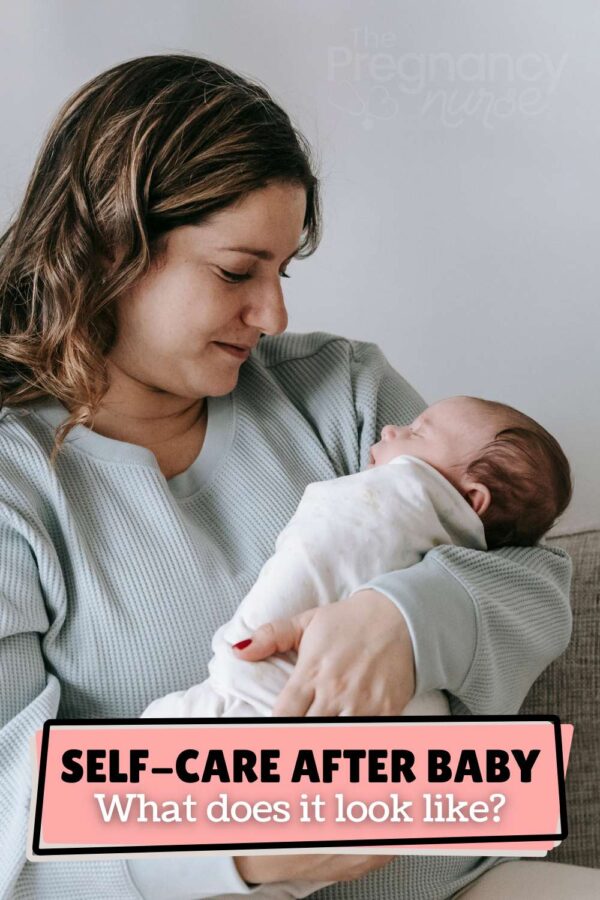
Please do take your mental health seriously, along with all your other bodily needs. Creating a plan in advance is the key — grab one to get you started here:
Sleep
It can feel “lazy” to sleep more as you get further in you pregnancy, but along with extra nutrients, your body requires more sleep to grow another human inside yourself.
Not to mention that you may not be getting consistent stretches of sleep due to positional pain, your bladder, or anxiety (I recommend this for that).
Postpartum Sleep
Sleep requirements will change after the baby is born. For the first month sleep will be on and off.
While many people say to sleep while the baby sleeps, that’s not always feasible — but it can be a goal.
After the first month, it should be a goal to get 4-5 hours of uninterrupted sleep. Studies have shown that this can decrease your chances of getting postpartum depression.
If you’re starting to feel “down” after baby is born — sleep should be one of the first things you consider.
A lot of people feel “tied” to the baby because of breastfeeding. During the first month it is important to feed on demand to manage your supply and help your body produce milk for the baby. However, once your supply is established, most people are going to be able to take that time off (although check with your lactation consultant for more info on that).
A few things that have worked for people:
- Picking sleep shifts. So, one partner sleeps during the early time — maybe 10pm-2am; and the other one sleeps from 2 am to 6 am or something. This may mean that baby has a bottle during this timeframe and mom pumps right after her “shift” is up.
- Outside help — maybe grandma, a friend, or even a postpartum doula comes to help get those hours of sleep for you.
Remember, sleep is important for BOTH parents.
I see a lot of people saying in their relationship they prioritized their husband getting sleep and they were just the sleepless one. I guess if that works for you, it works — but that does NOT work for most people. People NEED sleep.
I see a lot of people who KNOW that sleep is the issue, but have no idea how to accomplish it. I would encourage you to reach out to your partner, family, and those who love you to brainstorm ideas to help you get some REST. YOU DESERVE IT.
While we’re here, grab my postpartum checklist right here:
Movement
Some type of movement is an important part of self care.
Now, there’s lots of moments that can be problematic (looking at you jumping jacks) but you’re looking for movement that feels good.
- A short walk (sunshine and fresh air is a huge bonus)
- Some stretching
- Other pregnancy or postpartum movements
BTW, looking for some great pregnancy workouts — I love Kaleigh Cohen’s (she’s filming them pregnant and you can tell she struggles, which I appreciate):
Postpartum Movement
I thought extra movement would help my postpartum depression, but I ended-up making my very sore bottom worse.
If you had a C-section, this movement will be getting up and taking care of yourself, and maybe walking out to get the mail.
If you had a vaginal birth I want to remind you that everyone’s healing process is different, so don’t over-do things, and START SMALL.
Too much movement can increase your bleeding postpartum, and I talk all about that in here (so grab it right now).
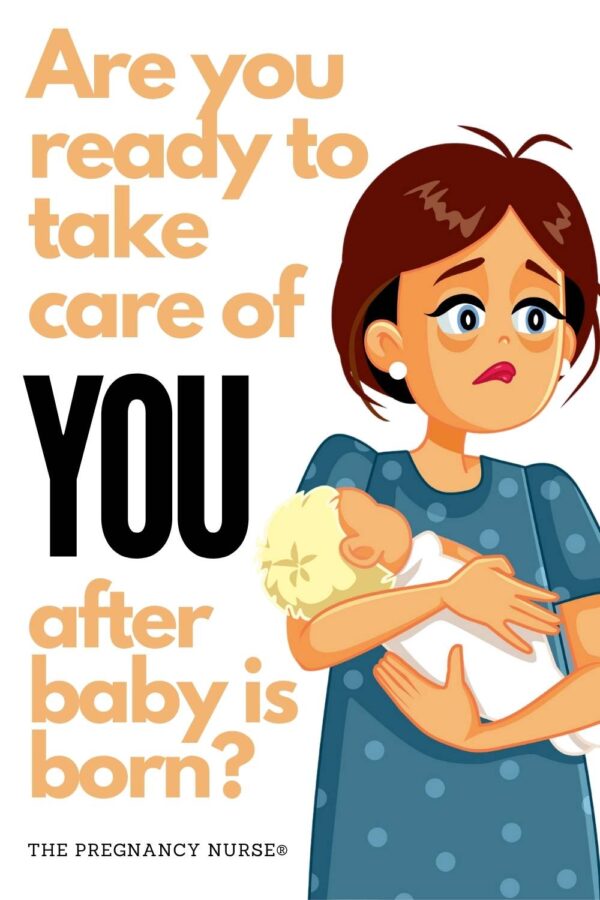
Eat
Food is important. It’s really easy to fill your needs with ding-dongs and ho-ho’s (especially postpartum) but eating a balanced diet has never been more important.
One easy thing to do is to make sure that each meal has protein in it.
A few favorite snacks:
- Apple & peanut butter
- A handful of nuts
- Cheese & crackers
- Trailmix
I think this is so important I actually have a bonus video on nutrition in here. SO many people ignore it, and that isn’t doing you any favors.
Remember, that baby will take from you what it needs, so you need to fuel yourself so that you’re not at a deficit.
Postpartum Eating as Self-Care
I know everyone says to sleep when baby sleeps, but I recently heard that new moms need to eat when babies sleep. I thought that was smart. Grab some fruit, a granola bar or a sandwich when baby eats. A lot of people just put easily-reachable snacks in a basket near where they feed.
Make sure you’re also drinking water. So important for your healing & milk supply if you are breastfeeding.
Time-Off
Ok, pregnant friends, you can’t get time off from being pregnant, sadly — but this is more for my postpartum friends.
You need some time “off” of baby duty (and you’re not asleep).
The baby can encompass your entire life if you let it, and performing a job 24/7 for days on end can lead to burn-out.
I mean, imagine if you had a friend who told you they took a new job that they planned to work at 24/7 for the next month. You’d think they’re insane, right? YOU need time-off too.
Talk to the people that you love about how they can help you have this.
Breastfeeding can feel like you’ve accepted that 24/7 job — and it is very tricky that first month. But, after that you can figure out some time off by leaving a bottle (of formula or breastmilk) — and taking care of YOU. YOU MATTER TOO!
What can you do for someone else to support them?
There are lots of ways that we can support new mothers. Often we think it needs to just be meals or holding the baby for them, but we need to support ALL the family — here’s some good ideas I have heard:
Emotional Support
This is things like caring for them, giving them encouragement. I think that checking in with a text is a great way to do this. They can respond when they’re able and allows them to know that they matter. Can I stress that more?
Helping new parents know they haven’t left your mind, your heart or even society can be nice. You often feel so isolated — let’s all check on each other more!
Companionship
Hanging out with a new mom — whether you’re folding laundry with them, holding the baby for them, or cleaning up the house — being there for them can be so important.
It’s also important to respect whatever boundaries they have. Maybe they don’t want “strangers” holding the baby or something along those lines — be comfortable to help how you can and let them hold their own boundaries.
Informational Support
Can you help them with a problem they’re having? Giving guidance, suggestions, information on resources can be very helpful. Even a mom speaking from experience is so valuable.
It’s important in this area to also respect to give advice for a problem they want advice on — not what you want to give advice on.
Sometimes the whole world wants to tell a new mom how to do something, and I’ll be the first to say that we all find our way with our babies (honestly, each one — they’re all different). We need to respect that, and only offer information they’re seeking.
Tangible support
This is often what we think of:
- Provide meals (freezer meals are also great that they can pull out when they need them)
- Watch other kids
- Run errands for them (making returns for them is SO handy)
- Doing laundry (either at their house, or just do a pick-up service)
- Help with cleaning/picking stuff up
These are so valuable too. Often we just think of meals — but there’s a lot we can physically do for new parents to help ease their burdens.
This is the part where I remind you again that YOU matter.
Your world tends to get wrapped-up in that new baby, but that actually doesn’t do the baby and favors. It needs a fully-functioning mom in order to thrive in their new life. Give them that. You both deserve it.
Sources:
Lewis BA, Gjerdingen D, Schuver K, Avery M, Marcus BH. The effect of sleep pattern changes on postpartum depressive symptoms. BMC Womens Health. 2018 Jan 9;18(1):12. doi: 10.1186/s12905-017-0496-6. PMID: 29316912; PMCID: PMC5761144.


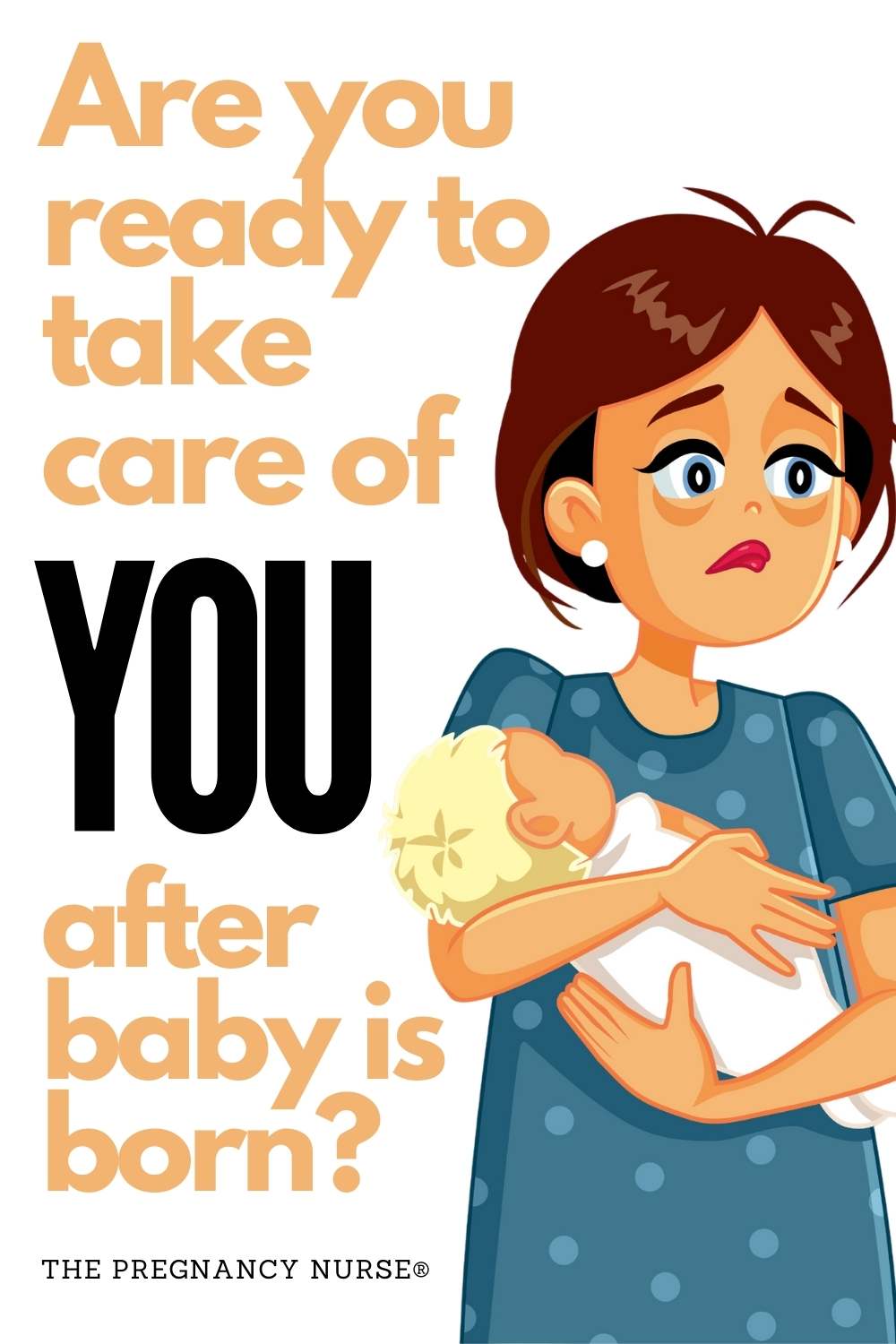
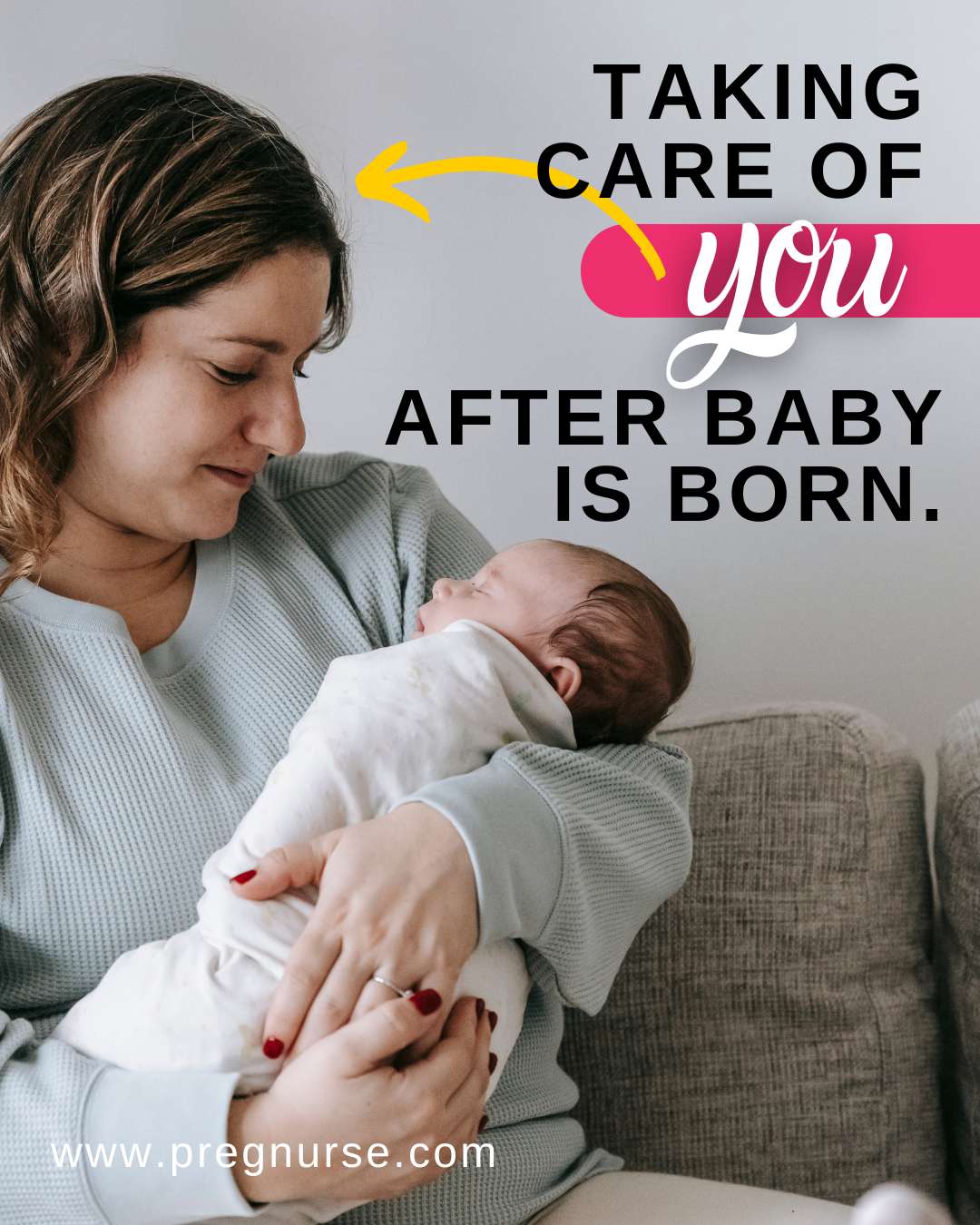

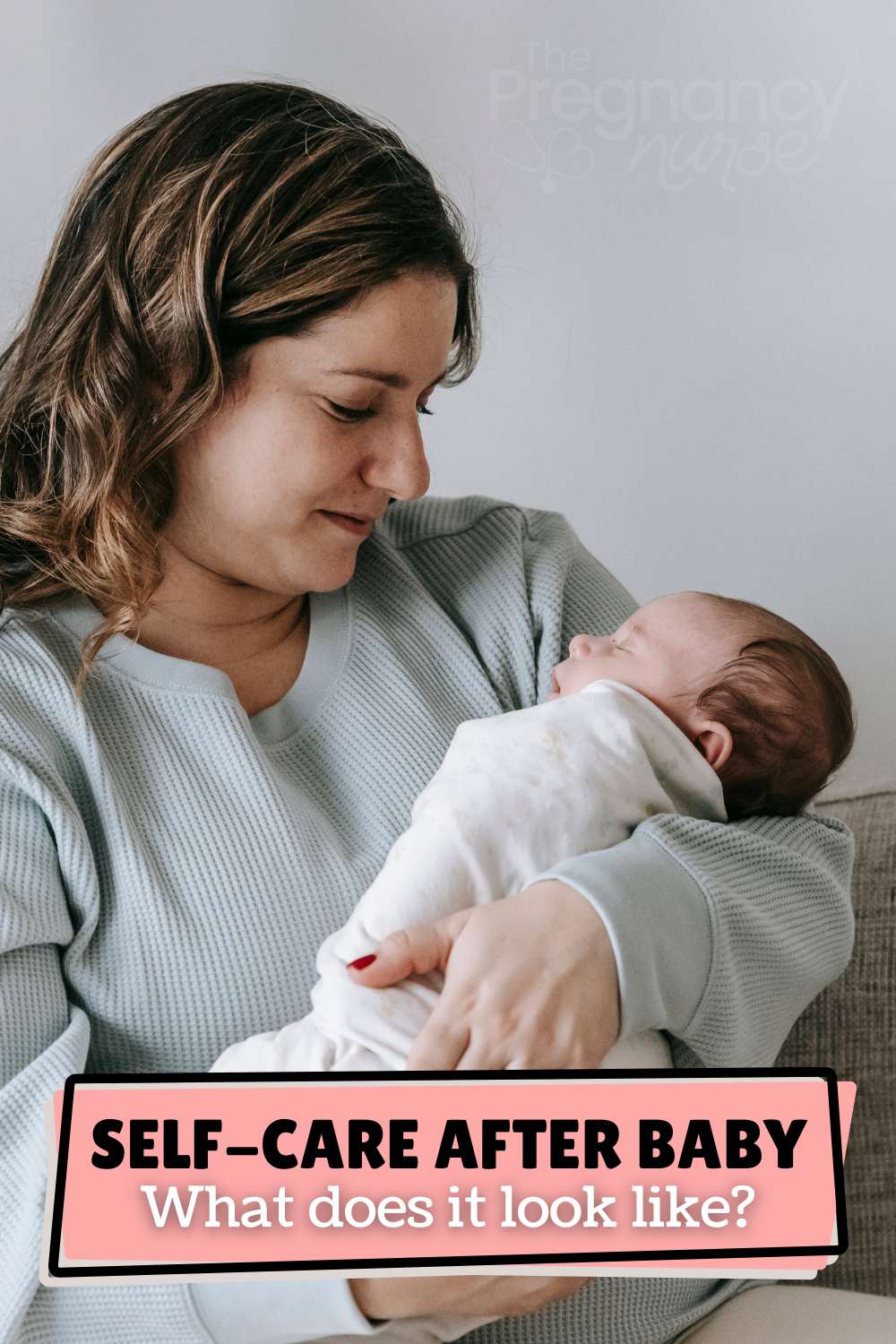
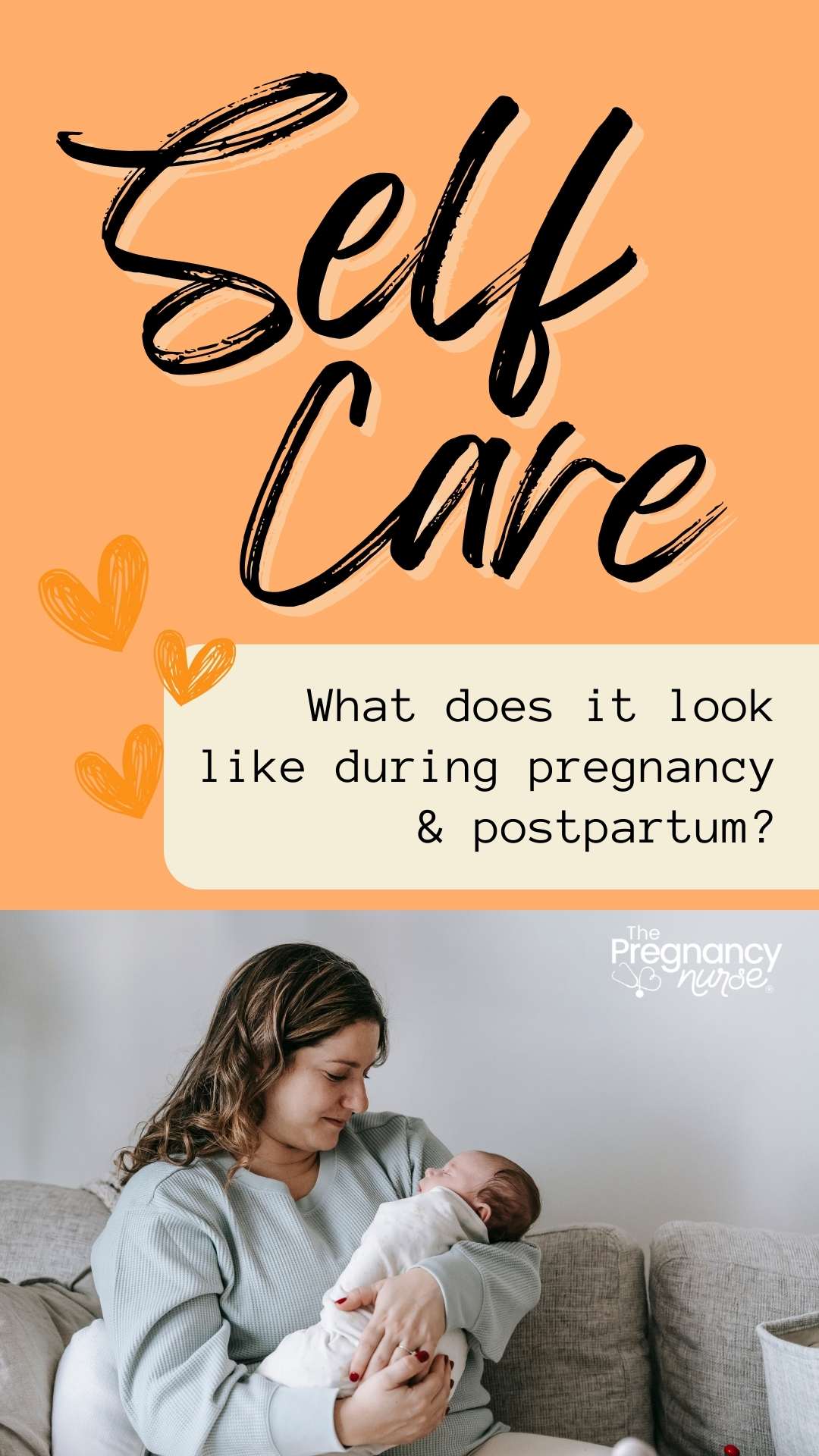



 My #1 Tip for Hospital Birth
My #1 Tip for Hospital Birth
